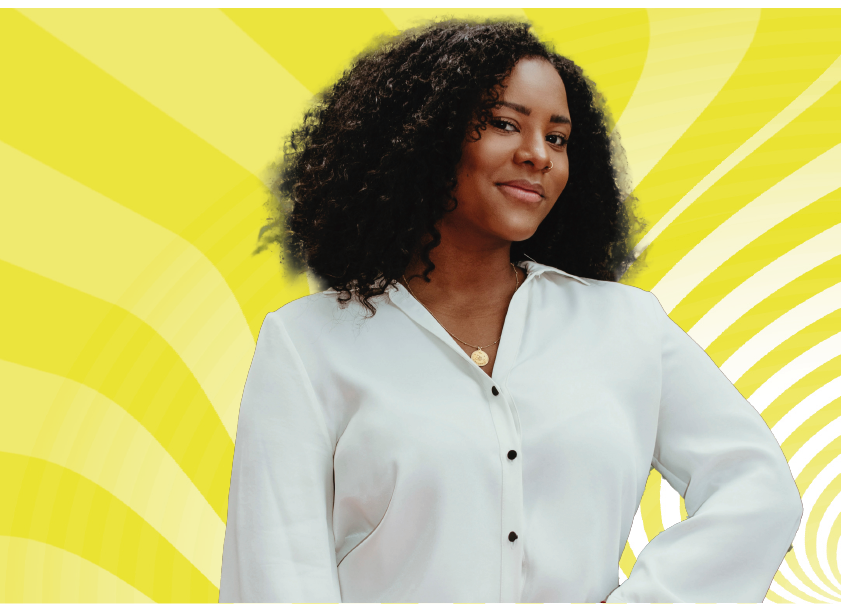
Kamil Lewis, 32, says her approach incorporating the mind, body, and community, and differs from that of other therapists
Kamil Lewis is an intersectional therapist based in West Hollywood, California. Lewis defines her role as an associate marriage and family therapist, and spoke to us about the benefits of marginalised people seeking intersectional therapy.
What is intersectional sex therapy?
Sex therapy is a place where you can talk about sex and sexuality in a very intentional way that feels safe, accepting, and non-judgmental. The intersectionality component comes in for me as a Black woman to talk about all the varying identities that we bring in. This includes queerness, Blackness, class, and everything that we might face that has an effect on how we experience the world. When working through an intersectional lens, you make intentional space to acknowledge all those components, and how it might be affecting your health, safety, and community.
What drew you to become an intersectional sex therapist?
I was always interested in sex therapy. During graduate school, there weren’t a lot of spaces in terms of courses where sex therapy was being talked about at all. In addition to that, race wasn’t being prioritised which was much different than what I was used to from an educational perspective, and just from a ‘being-on-this-earth’ perspective.
It really felt important for me to acknowledge the gaps and the ways that things were missing because everybody either has sex, does not have sex, or is thinking about sex, even if it’s coming from a shameful place. This happens for a lot of folks with cultural shame, religious shame, etc.
It was important for me to be clear in addressing this in my work and creating a space where people can ask questions, be confused, and talk about the shame and misunderstandings they might have about sex and how it relates to their cultural background.
As a Black woman, how and why do you think that contributes to a better connection with clients?
A lot of Black women contact me for therapy because there’s already so many spaces where we are marginalized. There’s already so much isolation that we experience through society, so Black women are just looking for somebody who gets it and that they don’t have to do an extra step of explaining different things. While I take my work very seriously, I’m also pretty casual. I’ll make jokes, cuss, and talk like how I usually talk, that way you don’t have to do all of the code-switching that you might have to do with another therapist, or other spheres of your life. I think that that makes people feel safe.
How do you feel that your approach in therapy (collaborative, holistic, and somatic) is more beneficial than that of a regular sex therapy session?
The collaborative piece feels very important for me because I think another part that feels scary for folks is coming into therapy and feeling as if this person is just to be this all-knowing therapist who can be intimidating. If I’m just sitting there, nodding and not really engaging, it’s hard for people to feel safe because you’re like, “what the hell is this person thinking? What are they doing?” It’s important to ask the client upfront what they are expecting from this and how we can get there because I have the expertise, but I’m not the expert on you, you are.
The non-judgmental aspect is important because when a lot of people are expressing vulnerability, especially from a sex or sexuality perspective, they have already shamed themselves or been shamed so many times that it might take several sessions for them to even open up about what their true questions are. I make sure to take it at their own pace, but also be clear that I’m not judging.
For somatic, I think that we spend a lot of time in our heads. We end up pathologizing, judging, and isolating ourselves, so sometimes I tell clients we don’t have to do or say anything; just take a few deep breaths and acknowledge what’s happening in your body. Our body is such a huge resource that we tend to neglect but have so much information.
You mention that you are BDSM, kink, non-monogamy, and LGBTQIA+ affirming; why do you feel that it is important to be upfront about this with potential clients?
A lot of people come in for a variety of reasons and might be like, “is sex therapy just for sex addiction or not being able to get an erection?” I don’t experience sex as an addiction ever, so I don’t work from that perspective. But I think it’s important you talk about all of your intersecting identities. So, a queer non-monogamous person may have a different experience than that of a cis-kinky person. I’m part of the community, so it feels important for me to just be really clear about that. That way you can talk about anything with no problem at all and feel as safe as possible.
